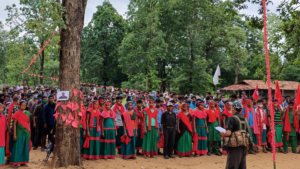Pandemic of hunger and poverty due to lockdowns and restrictions

The United Nations (UN) warned that the stringent restrictions which states have implemented to contain the Covid-19 pandemic will result in a hunger pandemic and “unimaginable effects on health and the economy.” The UN said that “more people could potentially die from the economic impact of Covid-19 than from the virus itself.”
Poverty and disease
At the same time, it noted that global food prices might increase due to disruptions not only in the production of food, but also of other materials used in food production. There is also a drop in harvests due to disruptions in the production of agricultural companies in big exporting nations.
Countries dependent on food imports, such as rice, would be hit hard if exporting countries will implement export bans and price increases. The UN warned that the pandemic could result in long-term poverty that cannot be easily resolved.
According to the UN, the Philippines is among the countries with the highest incidence of hunger. Those who suffer from hunger in congested urban poor communities and rural poor communities are most vulnerable to Covid-19 and other common diseases caused by malnutrition. Such areas are without clinics, adequate water supply and sanitation system. In the cities, the poor are cramped in small spaces, making it impossible for them to maintain physical distancing or to quarantine sick members of the family. In rural areas, medical equipment, health care providers, and health infrastructures such as quarantine facilities are extremely scarce. (See related article in Ang Bayan, April 7.) Millions suffer from hunger due to unemployment, low wages, and landlessness both in the cities and countryside.
The poor suffer from worse hardships due to the economic devastation caused by the lockdown. Stringent travel and work restrictions result in product and labor supply disruptions. The Philippines are among the countries that suffered huge income losses from tourism and remmitances from migrants. The weak foundations of the local economy are bound to be devastated. Since the state opted to loan instead of properly realigning the national budget, the people are bound to shoulder the costs of the lockdown for a long time.
Hunger today and in the future
According to the World Food Programme (WFP), around “30 countries in the developing world could experience widespread famine.” In 10 of those countries, there are already more than one million people suffering from starvation. It noted that another $350 million is needed to set up the logistics network to get food and medical supplies to where these are needed. Travel bans and restrictions aggravate the problem as these obstruct the delivery of emergency aid from international agencies.
Currently, approximately 812 million people are experiencing hunger everyday. Around 135 million are on the brink of starvation. However, the WFP noted that an additional 130 million people could also be pushed to starvation by the end of the year.
This includes about 30 million people who literally depend on the WFP for food. Without this aid, approximately 300,000 could starve to death within three months.
In the Philippines, food production cycle has been adversely affected by transportation restrictions, from provinces to cities and in between provinces. These restrictions will have severely affect the movement of peasants and farmworkers especially this upcoming rice and corn planting season.




